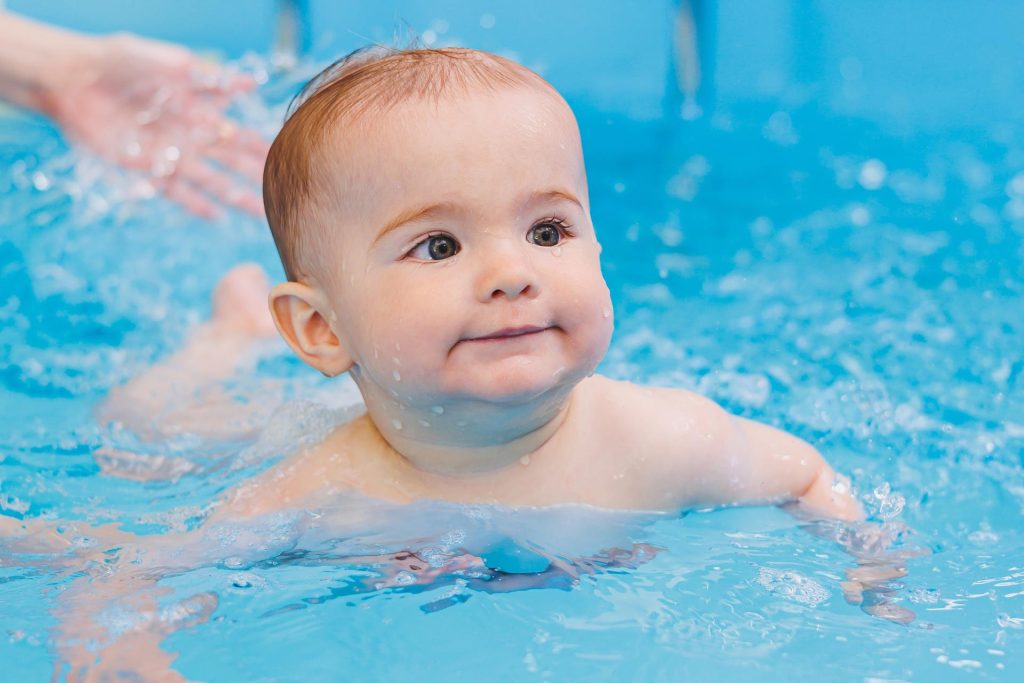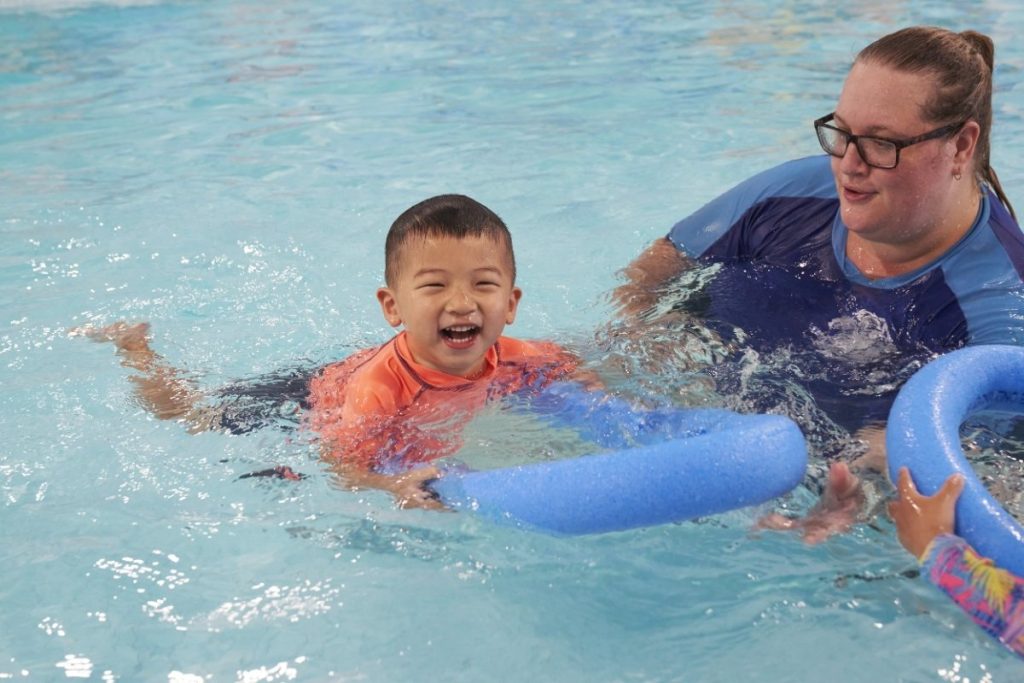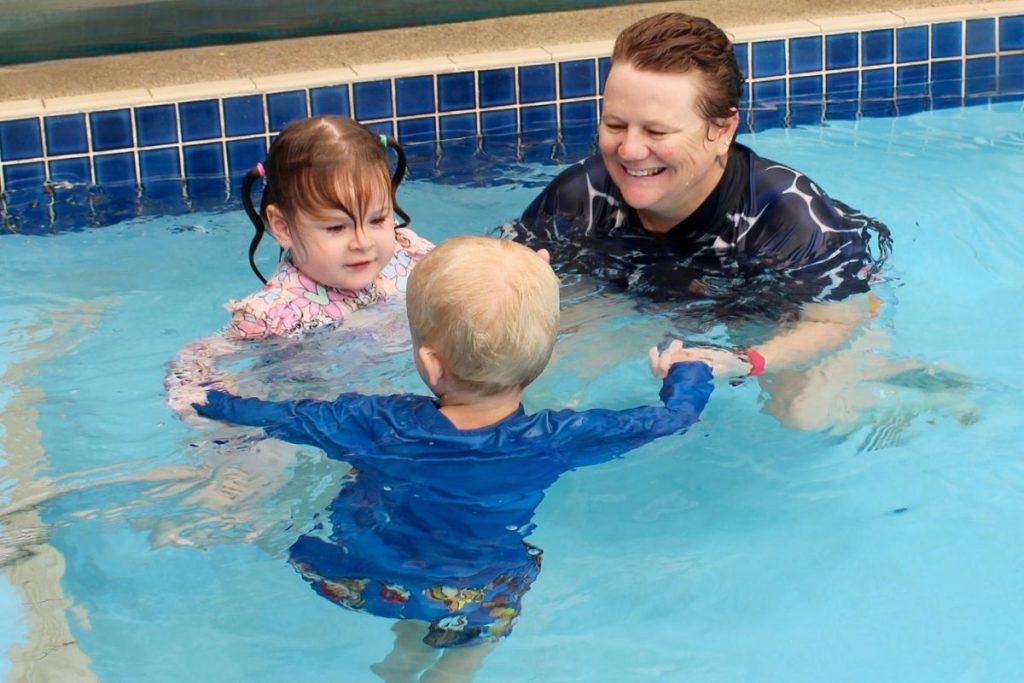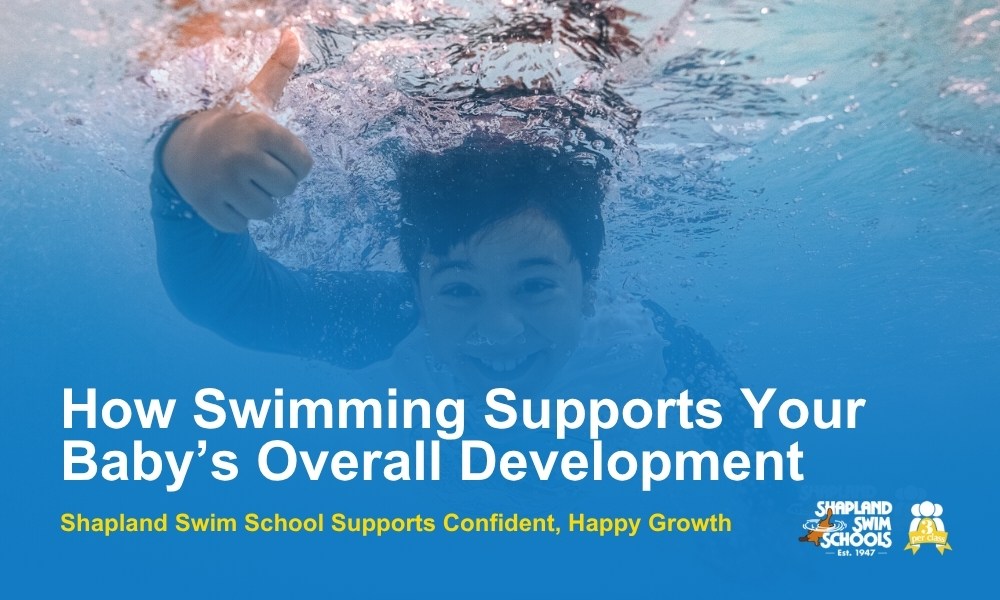Swimming is not only a fun activity for babies. It is also a powerful tool that supports their physical, cognitive, and emotional growth. Beyond equipping children with water safety skills, child-friendly pool time encourages stronger bodies, sharper minds, and greater resilience.
In this article, Shapland Swim School highlights how swimming supports your baby’s overall development and when children can start swimming.
When Can Children Start Learning to Swim?
According to paediatricians and swim safety experts, children can learn to swim as young as 5 months old. Babies naturally enjoy the sensation of water at this age, making it easier for them to adapt and build confidence. Introducing swimming early also provides a safe foundation for essential water safety skills while fostering physical and cognitive benefits.
Early exposure supports mental well-being by reducing water fear and encouraging independence. By starting swim lessons young, parents give their children the advantage of developing a lifelong love for swimming while preparing them for safe aquatic experiences. However, always practice in favourable conditions, such as warm water classes.

Why Swimming Matters for Your Baby’s Development?
Swimming is one of the most holistic activities for infants because it nurtures the body, stimulates the brain, and builds emotional security. Below are the benefits of swimming that extend across multiple growth areas.
Physical Benefits
Swimming offers significant physical benefits that support a child’s body during critical stages of growth. These include:
- Promotes bone and muscle growth: Swimming is a low-impact activity that works major muscle groups and bones. This exercise strengthens muscles while promoting bone density in a safe environment. Simple and child-friendly pool games like fetching the toy also refine motor skills and coordination.
- Supports heart and lung function: Swimming is a gentle aerobic exercise that keeps the heart rate up and improves circulation. This, in turn, strengthens the heart muscles. Breath control techniques during swimming also steadily increase lung capacity and teach children to use their lungs efficiently.
- Improves flexibility: The natural water resistance boosts joint mobility, enhances spinal health, and encourages fluid movement as babies bend, stretch, and kick in the pool. This balance-building aspect goes a long way in improving flexibility as the baby grows.
Cognitive Benefits
Children’s swim lessons contribute to brain development and learning abilities, offering various cognitive benefits. These advantages improve academic readiness and long-term growth.
- Increased blood flow: Gentle movements in water improve circulation, increasing oxygen supply to the brain. This increased blood flow supports neural activity and helps babies become more alert and responsive.
- Enhanced cognitive skills: Swimming involves coordination, balance, and multisensory engagement. These activities sharpen problem-solving abilities and encourage early spatial awareness. The sensory input from water, such as feel, resistance, and temperature, strengthens brain activity, improving cognitive growth.
- Improves memory development: Simple, fun routines – like kicking, reaching, and floating – help children strengthen memory growth.
- Enhanced concentration and focus: By following gentle guidance from their instructor, children learn to listen, concentrate, and stay engaged – skills that carry over into everyday life.

Other Benefits
Beyond physical and cognitive growth, swimming supports your baby’s emotional balance, social development, and long-term safety. These added advantages highlight why swimming supports a baby’s overall development and provides life skills that extend beyond the pool.
- Improves sleep cycles: Swimming helps babies burn energy in a gentle, low-impact way that relaxes muscles and calms the nervous system. Water also has a soothing effect, making it easier for infants to transition into deeper, more restorative sleep cycles.
- Encourages social interaction: Structured swim lessons often involve group interactions, helping children develop essential social skills as they learn alongside others. Group activities also teach children to communicate effectively, show empathy, and build connections in daily life.
- Builds self-confidence: As babies learn new skills in the water, they experience small but meaningful achievements, including independent floating and paddling. These milestones build trust in their abilities, fostering resilience and self-confidence.
- Enhances drowning prevention: Early swim lessons equip children with essential water safety awareness. Through calm repetition and guidance, these lessons build awareness that helps prevent drowning.
Where Can Children Learn to Swim Safely in Queensland?
If you are searching for a trusted and nurturing swimming environment that supports your child’s overall development, Shapland Swim School stands out in Queensland. With more than four generations of teaching expertise, we provide small-group lessons of only 3 children per class, ensuring each child receives personalised attention from our certified instructors.

Our swim classes are conducted in warm water to create a relaxed atmosphere while promoting faster learning. Families across Australia also trust our flexible makeup lessons as they support busy schedules, while making it easier to give your child a safe and confident start. Enrol your child today to help them become emotionally, physically, and socially strong.

